News
‘Asian media appear to be weathering storms better than expected’:

Experts discuss Covid’s impact on media
The session was co-organized by China Daily, University of International Business and Economics, Shanghai International Studies University and Asia News Network.
SNS: Amid the spread of coronavirus pandemic, which has affected the businesses across the globe, a panel discussion session themed “COVID-19 and Impacts on the Media” was held virtually.
The session was co-organized by China Daily, University of International Business and Economics, Shanghai International Studies University and Asia News Network on Wednesday.
The panellists discussed how reporting strategies and operations of the media have changed amid the COVID19 pandemic.
Mr. Zhou Shuchun, Standing Committee member of the CPPCC National Committee and Publisher and Editor-in-Chief of China Daily, delivered the welcoming remarks.
“Chinese media colleagues have braved hardship and danger to record heart-warming battles to tell the story of China’s fight against the pandemic, which boosted the morale of frontline warriors,” he said.
Later, Dr. John Gong, Professor of Economics, University of International Business and Economics; and Dr. Debao Xiang, Professor of School of Journalism and Communication, Shanghai International Studies University; shared their insights on the topic.
John Gong pointed out that the model of the media is changing. “Now people are more and more receiving messages through relays of information. What this difference makes is that, in order for the message to be relayed, there is a tendency for the message to go extreme. You’re moving into a world where you have those short snackable video clips kinds of product that people tend to use or like to watch. There’s no difference between fact and opinion-editorial,” he said.
“It is now even more difficult for readers to get information that is objective, fact-based. Traditional media need to tighten their seatbelt and stick to what they are doing. If you have to sacrifice your journalistic standard for traffic volume, this is deplorable. The government needs to take actions. I think we have quite a strong government here in China that looks after this disinformation and misinformation,” he added.
Debao Xiang pointed out that the pandemic’s impact on the industry is both negative and positive. “There is a decrease in the average media budget due to the coronavirus. Around 35,000 journalists in the US have been laid off and faced pay cuts amid the pandemic. This is not only influenced by COVID-19 but also the impact of the new technologies. But audience trust for journalists has increased …this is a good phenomenon for the journalism industry,” he said.
Insight Spotlight was followed by a panel discussion which was moderated by Mr. Pana Janviroj, Executive Director, Asia News Network; and Dr. DJ Clark, Multimedia Director, China Daily Asia Pacific.
Prominent leaders from media companies and experts joined the panel discussion. They were: Mr. Zhiming Chen, Deputy Director of International News Department, China Daily; Mr. Choo Joon Kian, Deputy Editor in Chief, Sin Chew Daily; Mr. Philip Golingai, News Editor, The Star; Mr. Ziaul Hoque, News Editor, The Daily Star; Ms. Vivian Hsiao, Reporter, China Post; Mr. Min Thaw Htut, Executive Director, Eleven Media Group; Mr. Nitish Kapoor, ANN Editorial Coordinator, The Statesman; Ms. Juliet Labog-Javellana, Associate Publisher, Philippine Daily Inquirer; and Mr. Ly Tayseng, CEO, Phnom Penh Post, Cambodia. They examined the implications of COVID-19 on the media industry. They discussed the future development of the media industry.
Pana Janviroj pointed out that many Asian media appear to be weathering the storms better than expected. But more importantly there is a consensus from bottom to top of the newsrooms, despite the dwindling resources and advertising revenue plunges, the relentless determination to do their jobs.
“Those are to bring accurate reportings to readers and keep them well informed. The reporters are determined to do their jobs because readers and public at large appreciate their works. The Covid-19 era has endowed long awaited public appreciation of mainstream national media and journalism,” he said.
Zhiming Chen highlighted that technology has played a key role to contain the 2020 virus. “As a news organization with global reach, China Daily is fortunate to have offices and reporters worldwide. This means, during critical moments in COVID-19 coverage, we have nose, eyes, ears on spot. This kind of local presence was invaluable for us,” he said.
Choo Joon Kian said Sin Chew Daily has not laid off or had pay cuts for anyone. The company has officially launched a membership scheme. He said that the number of members has increased to 240,000 and their e-papers have increased by 5 percent. The company plans to set up a paywall on Apple next year.
Philip Golingai said, “For me, with the retrenchment in most of the media organizations in Malaysia and also downsizing and some closures, having at least three to five news organizations is very promising for us. Roughly, that’s the situation for us.”
Ziaul Hoque said the COVID-19’s impact has been unsettling. “Our revenue went down twothirds. There have been job cuts but they are not related to the pandemic. For workload, we have to adapt to these situations because it is the demand of the time. I think it’s a positive thing, in a sense that what we had to do, it expedited the process (to digitalization). We had to remodel business models,” he said.
Vivian Hsiao said she saw a bump in the number of readers in the beginning. “When covering the COVID-19 pandemic, our readers really needed to know what’s going on. I think the responsibility of the media increased greatly this year, but we have to be careful in covering the pandemic and provide accurate information because we wanted to give our readers the current information. But we also wanted to avoid creating unnecessary panic among them as well,” she said.
Min Thaw Htut said revenues from print advertising have declined. But that decline has been covered by digital investments. “Even though our core content is news, we have also diversified our content. The main lesson I have learnt is that we have to remain trustworthy, reliable and independent to do our main core functions. The other thing that we have to be mindful about is that the attention for eyeballs is very competitive. How do we survive this? It’s by creating good quality news,” he said.
Nitish Kapoor said revenue was going down at the start of the pandemic. “But with an increase in internet users, we have gained revenue. Eventually, we’ll get long-term benefits for sure. It will surely come back to us,” he said.
Juliet Labog-Javellana pointed out that one of the positive impacts of COVID-19 for the media is it provided the impetus to accelerate digital transformation and innovation. “So what the Inquirer did was to move quickly to different platforms like we hosted more than a dozen webinars; print journalists went into podcast….we published newsletters. Because most of our staff are working from home so maybe the big challenge during this pandemic is that media’s access to government officials has been limited because there are no face-to-face press conferences. Officials can mute you online. There’s no opportunity to grill officials. The Inquirer had to leverage our credibility to counter the ‘disinfodemic’ about COVID-19 which posed a danger to people’s lives,” she said.
Ly Tayseng said, “This year, we didn’t have to retrench staff. This year, our advertising for printed media was reduced by 30 percent, but our subscription number has remained the same. Our digital revenue is increasing, but it is not significant. If the advertising revenue keeps dropping, I think there may be an impact for next year.”
Founded in 1981, China Daily covers 33 million readers and users worldwide through diversified platforms, including newspapers, websites, and mobiles and social media.
The number of China Daily’s followers has now reached 55 million on Weibo, 9.5 million on the WeChat Blog platform, 99 million on Facebook and another 4.39 million on Twitter.
The China Daily Asia Leadership Roundtable is a by-invitation network of movers and shakers in Asia, providing platforms for focused dialogue, issue investigation and possible collective action on strategic issues relating to Asia’s economic, business and social development.
News
Prime Minister launches Zahira College, Puttalam Website
The Prime Minister stated that the objective of the government is to use data and policy to provide what is best for children. Political interests or any other considerations are not important to us; what matters is, only the children.
The Prime Minister made these remarks while participating in an inspection visit to Zahira Muslim College Puttalam on Saturday [17th of January], following the visits to schools affected by the recent cyclone Dithwah.
During her visit, the Prime Minister officially launched the school’s website, which was designed and developed by the students of Puttalam Zahira Muslim College.
Responding to views presented by the Principal regarding obtaining approval to commence the GCE Advanced Level Science stream at the school, the Prime Minister stated that children should be provided with knowledge not only in science, but across all subject areas. She emphasized that all schools within the district should work collaboratively toward this goal, and stressed that building a division in society is not the vision of the government.
The Prime Minister further highlighted the need to do what is best for children, requesting that proposals and decisions required for this purpose be discussed collectively at the school level and communicated to her. She noted that it is not possible to provide a comfortable and effective education for children by operating in isolation as individual schools, and reiterated that priority must always be given to the needs of children.
Addressing at the gathering, the Prime Minister stated:
“We are now experiencing the consequences of incorrect decisions taken in the past. However, we can now look into a positive present. Therefore, going forward, we must refrain from making decisions based on political or personal considerations. Instead we must cultivate the practice of making decisions for the well-being and happiness of all children.
It was also emphasized that, in order to nurture children with diverse talents and abilities, education should not be limited to a single subject stream, but should aim to develop children with an understanding across all fields”.
The occasion was attended by the Minister of Public Administration, Provincial Councils and Local Government, Prof. A.H.M.H. Abayarathna; Members of Parliament Gayan Janaka Kumara, Ajith Gihan, Mohamed Faisal, and Hiruni Wijesinghe; the Mayor of the Puttalam District; the Secretary of Education to the North Western Province; the Director of Education; and teachers.
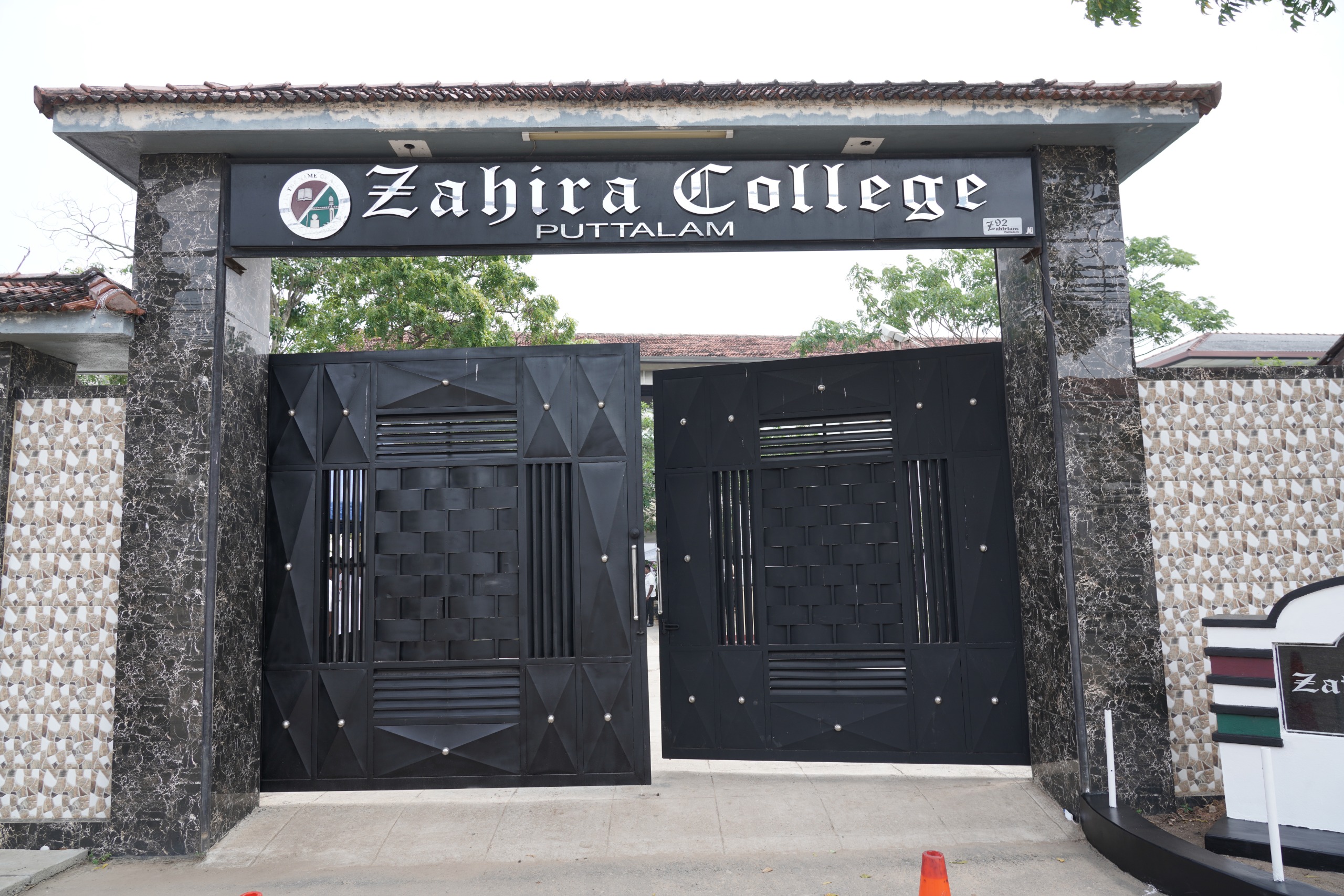
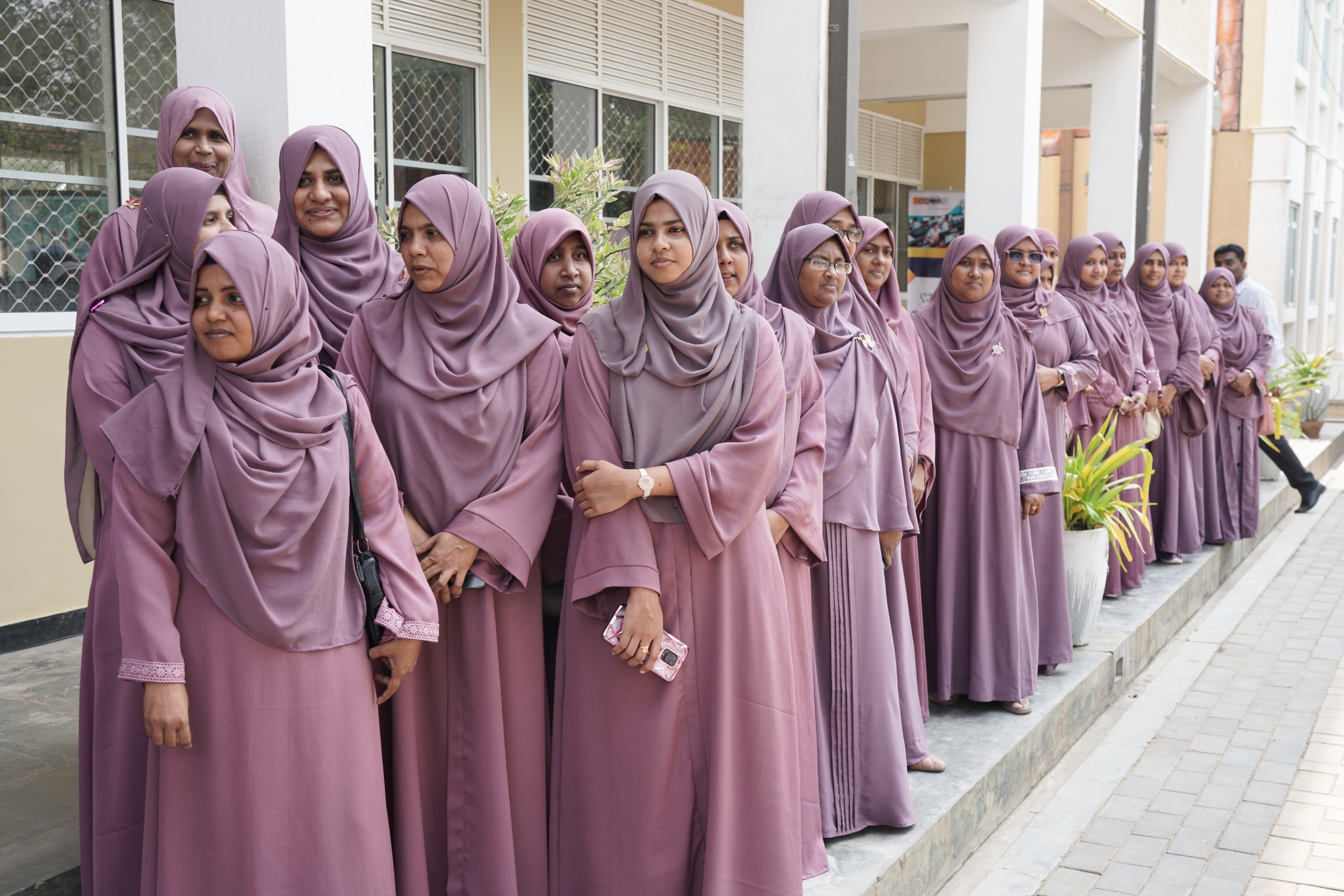
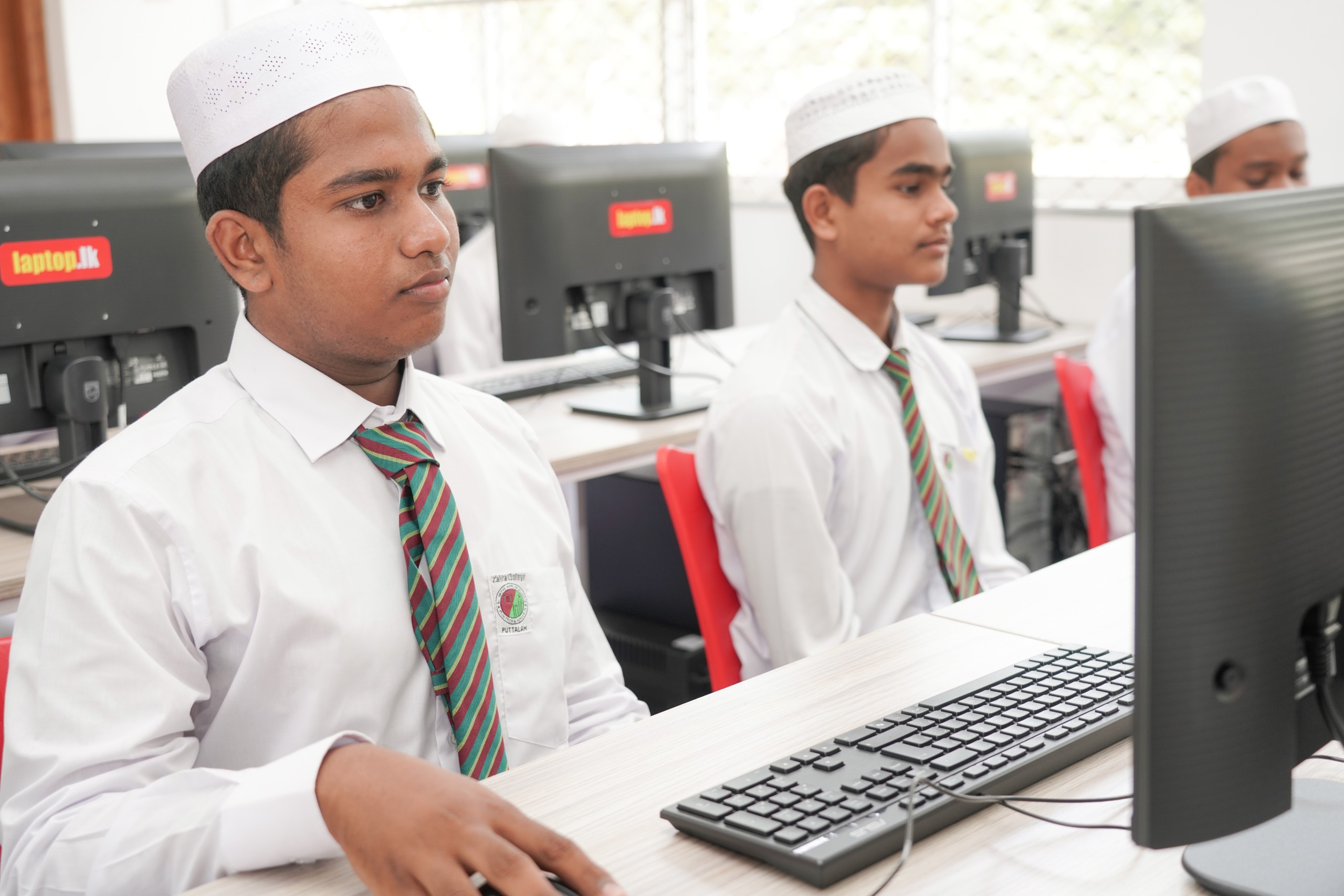
[Prime Minister’s Media Division]
News
Premadasa: Grade 6 syllabus fiasco signals deeper issues
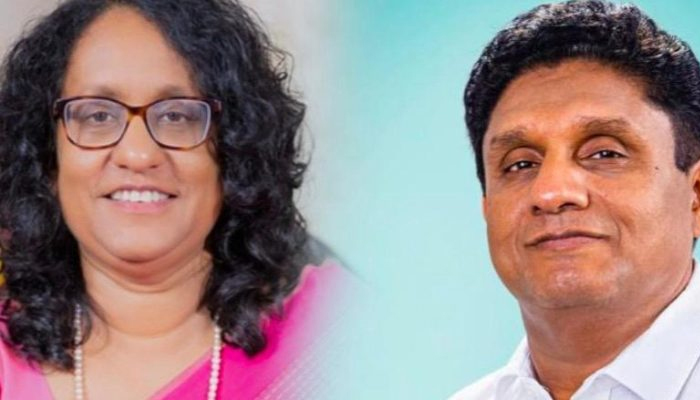
Vicious attacks disguised as criticism of education reforms, says PM
Opposition Leader Sajith Premadasa has said Sri Lanka’s education system has fallen into a “tragic condition,” warning that the crisis extends far beyond the Grade 6 syllabus fiasco.Premadasa made these remarks at the Opposition Leader’s Office during the establishment of the “Common Platform to Protect Free Education.”
Premadasa said that while public attention was on the Grade 6 syllabus issue, the problems facing the education sector were far deeper and affected the entire education system, including schools, universities and tertiary education institutions.
The Opposition Leader noted that the current crisis had not manifested itself overnight due to result of recent decisions; instead, it had developed over time due to reforms being introduced without proper consultation, dialogue or a participatory process involving stakeholders.
The Opposition Leader stressed the urgent need for setting political agendas aside and making a concerted effort to introduce meaningful educaton reforms. He said the rights of more than 4.1 million schoolchildren must be protected.
Premadasa said Sri Lanka must ensure that education was free and of high quality, and warned that failure to do so would have long-term consequences for the country’s future.
Taking part in a televised interview, PM Harini Amarasuriya responded to criticism of the government’s proposed education reforms, especially recent criticism on the rainbow colours on the covers of modules.
This is not constructive in any way. This is vile. This is really vicious. This is the politics the people of this country rejected in three elections in 2024 and 2025,” she said.
She added that the government was open to constructive criticism.
News
Sri Lankan Airlines launches Intl branding initiative for Colombo Nawam Maha Perahera 2026

SriLankan Airlines has unveiled a landmark international branding initiative to promote the Colombo Nawam Maha Perahera 2026, one of the country’s most distinguished religious and cultural festivals. The initiative is showcased on an Airbus A320neo, transforming the aircraft into a flying ambassador of Sri Lanka’s living heritage.
Through a specially designed aircraft livery, SriLankan Airlines now carries the prestige, spirituality, and cultural identity of the Nawam Maha Perahera across its international route network. This initiative positions the Perahera not only as a sacred Buddhist procession, but also as a major cultural and tourism attraction, highlighting
Colombo as a destination of heritage, harmony, and tradition.
Organised under the auspices of the Gangaramaya Temple, the Nawam Maha Perahera is internationally recognised for its historical significance, spiritual depth, and ceremonial grandeur. The concept for this international branding initiative was initiated by Venerable Dr. Kirinde Assaji Thero, who recognised aviation as a powerful platform for cultural diplomacy and global storytelling.
The successful realisation of this initiative has been made possible through the collective efforts of the Nawam Maha Perahera Committee, devoted devotees and supporters, and the institutional collaboration of the Prime Minister’s Office and the Ministry of Aviation, together with the full cooperation of SriLankan Airlines. The entire international aircraft branding initiative has been fully funded by the Gangaramaya Temple, together with the Nawam Maha Perahera Committee, reflecting the commitment of the Temple and its devotees to preserving and promoting Sri Lanka’s religious and cultural heritage on a global stage.
SriLankan Airlines extended its support across all levels of the organisation. Special appreciation is extended to the Chairman, Board of Directors, senior management, engineering and technical teams, designers, operational staff, and frontline employees, whose combined expertise and dedication transformed this cultural vision into reality.
Recently, Venerable Dr. Kirinde Assaji Thero, along with members of the Nawam Maha Perahera Committee, visited the SriLankan Airlines engineering and operations premises in Katunayake, accompanied by resident young Buddhist monks from the Gangaramaya Temple. During the visit, the delegation observed the progress of the aircraft branding work and offered blessings to the SriLankan Airlines team, expressing appreciation for their professionalism and commitment.
As the Airbus A320neo travels from city to city and culture to culture, it carries with it the story of Gangaramaya Temple, the Nawam Maha Perahera, and Sri Lanka’s enduring cultural values—fostering international awareness and strengthening the country’s image as a destination of faith, heritage, and cultural pride.
This initiative stands as a strong example of how religion, culture, tourism, and national aviation can work together in unity to elevate Sri Lanka’s presence on the global stage in the lead-up to the Colombo Nawam Maha Perahera 2026.
-

 Editorial23 hours ago
Editorial23 hours agoIllusory rule of law
-

 News2 days ago
News2 days agoUNDP’s assessment confirms widespread economic fallout from Cyclone Ditwah
-

 Business4 days ago
Business4 days agoKoaloo.Fi and Stredge forge strategic partnership to offer businesses sustainable supply chain solutions
-

 Editorial2 days ago
Editorial2 days agoCrime and cops
-

 Editorial3 days ago
Editorial3 days agoThe Chakka Clash
-

 Features24 hours ago
Features24 hours agoDaydreams on a winter’s day
-
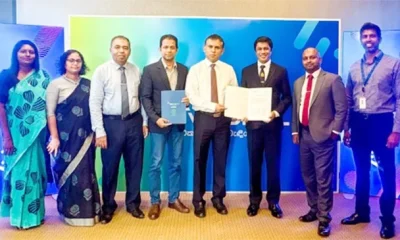
 Business4 days ago
Business4 days agoSLT MOBITEL and Fintelex empower farmers with the launch of Yaya Agro App
-

 Features3 days ago
Features3 days agoOnline work compatibility of education tablets












